Despite mounting pressure, the Muslim Brotherhood is unlikely to take up arms.
Whether or not the Arab Spring heralded a democratic transition in the Arab world, it was significant in the sense that even political parties with a predominantly Islamic ideology took to the streets demanding justice and fair elections rather than a state based upon shari’a.
Although many argue that the Muslim Brotherhood only joined the revolts at later stages in Egypt, the organization became an important force pressing for the formation of a civilian government.
However, Mohammed Morsi’s undemocratic expulsion from power, supported and executed by Egypt’s military generals, and his current trial for charges of inciting violence and murder – charges that are more political than legal – serve as a reminder to Islamist groups that more often than not they will be treated as outcasts within a political set-up. The recent designation of the Muslim Brotherhood as a “terrorist group” is also a case in point.
This in turn stands to thwart the very experiment of political Islam — the marriage between Islam and democracy — which some experts had believed would democratize much of the region in the long-run.
For decades, Islamist organizations had been in two minds over whether to join the mainstream electoral process or mobilize people as a non-state organization through civil society initiatives and social services. They hoped the latter method would help them secure support of the masses and put them in a position to replace the existing Western-inspired parliamentary system of governance with an Islamic caliphate in the future.
Al-Banna and the Muslim Brotherhood
This ambiguity had its origins in Hassan al-Banna, the founder of the Muslim Brotherhood, who was critical of Western concepts of justice and democracy. Strongly influenced by and opposed to the sweeping impact of British colonialism on Egyptian life and culture, unlike other Muslim groups in Egypt in the 1920s and 1930s, the Brotherhood believed Islam was sufficient to counter foreign domination.
For al-Banna, Islam was “complete and all-embracing, governing all aspects of private and public life… Islam was but politics, society, economy, law and culture.” It was, therefore, deviation from Islam and the subsequent imitation of Western customs that weakened Egyptian society. Thus, the replacement of shari’a by man-made laws of the West was not just cultural surrender but, more importantly, an act of heresy.
Nevertheless, al-Banna strongly believed in and advocated for Islamization from below, a process involving da’wa (preaching) that aimed at creating an Islamic government as the natural and gradual consequence of peaceful Islamization.
The Use of Violence
However, later down the line, leading Muslim Brotherhood member Sayyid Qutb legitimized the use of violence and soon, armed Islamist groups extended their violent actions against domestic targets. Qutb argued:
“Islamization from below is too slow a process impeded by the intervention of local authorities and foreign powers. Therefore, the only solution lies in the concepts of takfir and jihad. True Muslims are obligated to overthrow and kill such rulers in order to establish an Islamic state.”
After an initially inclusive policy towards the Brotherhood — as for example witnessed by the inclusion of Ahmed Hosni and Ahmed Hassan el-Bakoury into the Egyptian government — then-President Gamal Abdel Nasser led a crackdown against the group. This was related to the Brotherhood’s refusal to disband its paramilitary wing, al-jihaz al-sirri, and an unsuccessful assassination attempt on Nasser’s life by a Muslim Brother in 1954.
Consequently, the group was formally banned, thousands of its activists were incarcerated and many were executed. By the late 1960s, the Brotherhood realized that if it were to ever reemerge in the political scene, it could only be possible by abandoning its radical positions. The organization, therefore, turned to non-violent resistance which included societal reform and spreading Islamic education at the grassroots level.
This crystallized into some sort of marriage or understanding between Islam and democracy, in that the Brotherhood realized it was possible to push for their Islamic agendas by becoming a part of the existing political system.
The Muslim Brotherhood, under the leadership of their third mentor Umar al-Tilmisani, joined the political process. Al-Tilmisani paved the way for the Brotherhood’s participation in the 1984 elections in alliance with the neo-Wafd, and in 1987 they formed a coalition with the Workers’ Party.
Political Islam, Violent Struggle, and the Egyptian Military
Egypt’s Muslim Brotherhood undertook widespread reforms in order to widen their social base and enter the electoral process. They were, however, bitterly criticized by more radical Islamist organizations, such as al-Qaeda, which asserted that proponents of political Islam would be treated as outcasts within a democratic set-up, and that it was only through violent struggle that Islam could find its rightful place in society.
The Egyptian military has potentially strengthened the appeal of those in favor of armed struggle in the Islamist camp by ousting Morsi.
Significantly, Islamists in other Muslim countries, especially those characterized by a lack of transparent and democratic institutions, have also met the same fate as the Brotherhood.
Algeria is a prime example of this development. After the Islamic Salvation Front (FIS) surged to victory in the first round of the 1991 elections, the Algerian military overturned the result and led a violent crackdown on Islamists. The country slid into a protracted civil war for over ten years, as a result.
In Turkey, before the later electoral success of the Justice and Development Party (AKP), the Islamists were driven out of power in 1997 by a soft coup enacted by the country’s military against then-Prime Minister Necmettin Erbakan, barely two years after they were democratically elected to office.
An Inherent Antagonism Between Democracy and Islam?
Such incidents strengthened the radical Islamists’ belief that an inherent antagonism between democracy and Islam exists, and that political Islam is irrelevant and inconsequential.
In Egypt, the Brotherhood were victorious on three occasions: they won the parliamentary elections in 2011-2012; the presidential elections in 2012; and when they sought a two-round referendum for the 2012 constitution drafted by an Islamist-dominated constituent assembly, they once again polled a staggering 63.8% of the popular vote.
But with successive humiliation at the hands of Egypt’s judiciary and the military, ranging from the dissolution of parliament to an unabashed coup-d’état, the Brotherhood is under mounting pressure from fellow Muslim organizations to give up its experiment with democracy.
For example, Ansar al-Sharia of Libya said the Muslim Brotherhood of Egypt was wrong by participating in elections to gain power and criticized its failure to implement shari’a. The Somali Islamist group al-Shabab voiced similar criticism.
Al-Qaeda leader Ayman al-Zawahiri remarked that the coup testified Islamic rule cannot be established through democracy, while he urged all Islamists to adopt a policy of violent opposition to the ruling elite. This alternative path threatens to render the Brotherhood more ideologically driven than it is now as a political organization, which believes Islamic objectives can be achieved by gradual transformation of society.
If, however, the Brotherhood commits itself to attaining the Islamic objectives through coercion, it is likely to become more exclusive and intolerant.
Morsi’s Ouster: A Severe Blow to the Islamist Agenda
Indeed, Morsi’s ouster was a severe blow to the Islamist agenda across the Arab world, which aimed at bringing about some sort of marriage between democracy and Islam. For many, it has created the impression that secular and liberal opposition parties are leading a personal vendetta against the Brotherhood and that they would never allow it to run a government.
The Brotherhood is already beginning to read the current struggle as an existential battle against the Egyptian military. Now that they have been designated as a “terrorist group,” it is doubtful if they will ever again get the chance to participate in the electoral process as a free, democratic entity.
It was ironic that the vast masses of people who gathered in Tahrir Square to press for freedom and equality could not tolerate the outcome of their own demands. Some experts believe that Egypt’s elite and business classes, together with the media which is more responsive to this affluent class, were perturbed to see the Brotherhood’s rise to power on the ballot of the poor, illiterate, and other marginalized sections of society — with which the elites have traditionally had little interaction.
For them, the Muslim Brotherhood was the representative of the deprived classes and, therefore, lacked the intellectual caliber to make decisions on matters relating to administration or governance, which was likely to also impact the sensibilities of the rich and upper-middle class.
Embracing Violence
According to Hayat Alvi, associate professor in National Security Affairs, US Naval War College, Egypt now faces a real danger of Islamist militancy. In an interview the author conducted with her in August 2013, she said:
“We see evidence of a growing violent insurgency, which might reach full fledged status at some point, with recent car bombs, rail bombs, and assassination attempts. There is more of that to come. I contend that the real Islamist militancy danger lies with the Salafis who have now aligned themselves with the Sisi-backed coup regime. The Muslim Brotherhood can cause a lot of trouble and violence, but the Salafis are even more hard-line in their Islamism.
“… So, Egypt will face layers of Islamist militant networks vying for power, carrying out attacks against the government and security forces and other targets, and triggering a massive exodus of educated professional Egyptians, leading to a huge brain drain. That’s my prediction.”
Moreover, Michael Hughes, a columnist at The Huffington Post, told the author:
“If the military continues to repress the Muslim Brotherhood and disallows it from participating politically, it will most certainly come back to haunt Egypt because it will only fuel the extremist cause.”
Importantly, there has been an increase in attacks in Egypt targeting ministers and other public officials in the aftermath of the coup. Although Sinai-based militant group Ansar Bayt al-Maqdes claimed responsibility for the attack against Interior Minister Mohammed Ibrahim’s house on September 5, 2013, and while the Muslim Brotherhood has so far remained non-violent, the attack suggests that coercive measures against the Brotherhood will incite such violent reactions from individual Islamist groups, which in turn may revive a 1990s-like insurgency in Egypt.
“The events of the past few months were bound to create a sentiment among [the] wider Islamist community that the injustice they are experiencing should be fought,” said Issandr el-Amrani, North Africa project director at the International Crisis Group.
Muslim Brotherhood: No Inclination to Take Up Arms
However, it would be premature to compare these sporadic attacks to the insurgency of the 1990s, more so when the Brotherhood has limited its role to street protests and has not shown an inclination to take up arms even in the face of the deadliest military crackdown. The Brotherhood understands that a violent resistance will not only unite the opposition against them, but it will also give the armed forces a ready pretext to unleash more coercive measures.
Al-Sharif Nassef, editor at The Egyptian Gazette, who the author spoke to last month, was hopeful that the Brotherhood would continue in electoral politics, should they be allowed:
“According to Professor Nathan Brown, who I spoke with recently, it is unlikely that the Brotherhood will formally take up arms. However, there remains the possibility that former Brotherhood supporters, relatives of those arrested or killed during the crackdown, and disenfranchised Islamists will try and subvert progress through random acts of violence. The intelligence and security apparatuses are, at the moment, too well-equipped and too powerful for any meaningful insurgency to break out.”
While there is no doubt that the Brotherhood overreached its power while in office, excluded large segments of Egyptian society from the constitution-writing process and completely failed at economic policies, the coup was ill-conceived.
Experts believe that the Muslim Brotherhood would have been defeated in the next parliamentary elections under the weight of their own misgovernance. That would have compelled them to become more inclusive and secularize their political agendas.
The same happened in Turkey where the ruling Islamist AKP agreed to compromise on its policies. It declared Islam as the official religion of the state but stopped short of making any attempt to validate Islamic law.
In Egypt, the military coup and the subsequent outlawing of the Brotherhood have left no room for such transformation. If anything, it has abetted the Muslim Brotherhood’s possible degeneration into an underground force outside of the political process.
The views expressed in this article are the author’s own and do not necessarily reflect Fair Observer’s editorial policy.
Image: Copyright © Shutterstock. All Rights Reserved
Support Fair Observer
We rely on your support for our independence, diversity and quality.
For more than 10 years, Fair Observer has been free, fair and independent. No billionaire owns us, no advertisers control us. We are a reader-supported nonprofit. Unlike many other publications, we keep our content free for readers regardless of where they live or whether they can afford to pay. We have no paywalls and no ads.
In the post-truth era of fake news, echo chambers and filter bubbles, we publish a plurality of perspectives from around the world. Anyone can publish with us, but everyone goes through a rigorous editorial process. So, you get fact-checked, well-reasoned content instead of noise.
We publish 2,500+ voices from 90+ countries. We also conduct education and training programs
on subjects ranging from digital media and journalism to writing and critical thinking. This
doesn’t come cheap. Servers, editors, trainers and web developers cost
money.
Please consider supporting us on a regular basis as a recurring donor or a
sustaining member.
Will you support FO’s journalism?
We rely on your support for our independence, diversity and quality.





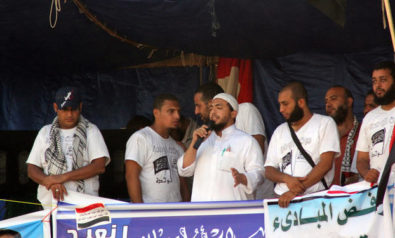
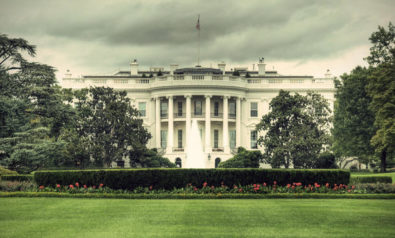


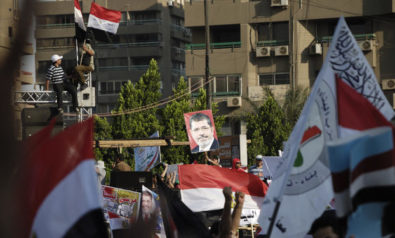
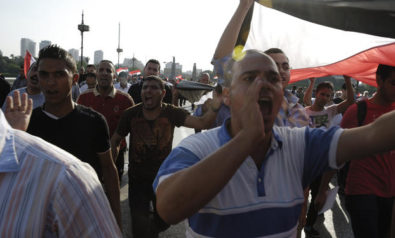
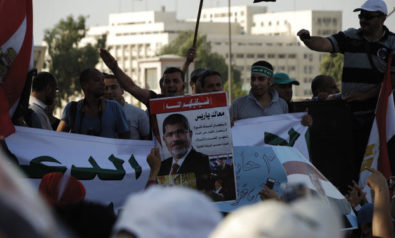

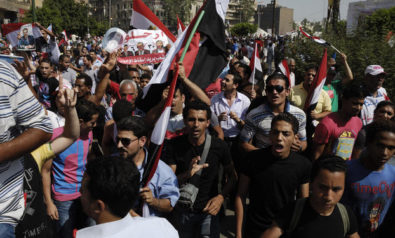
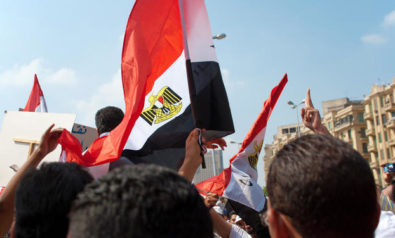
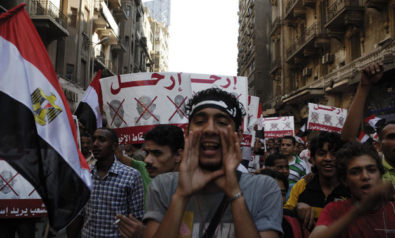
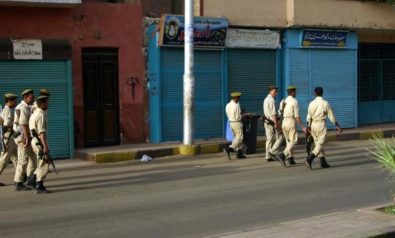
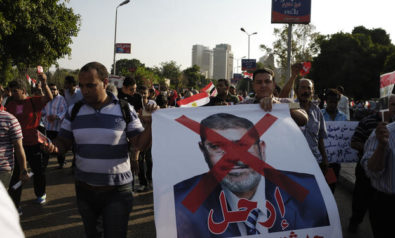
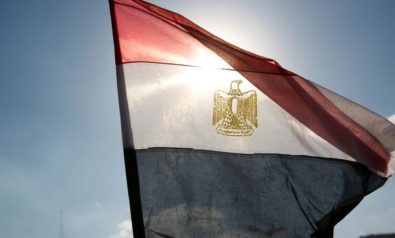
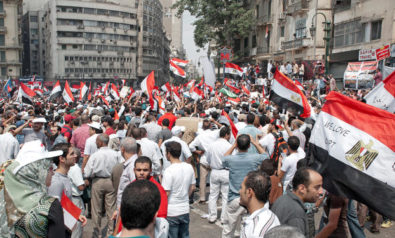

Comment